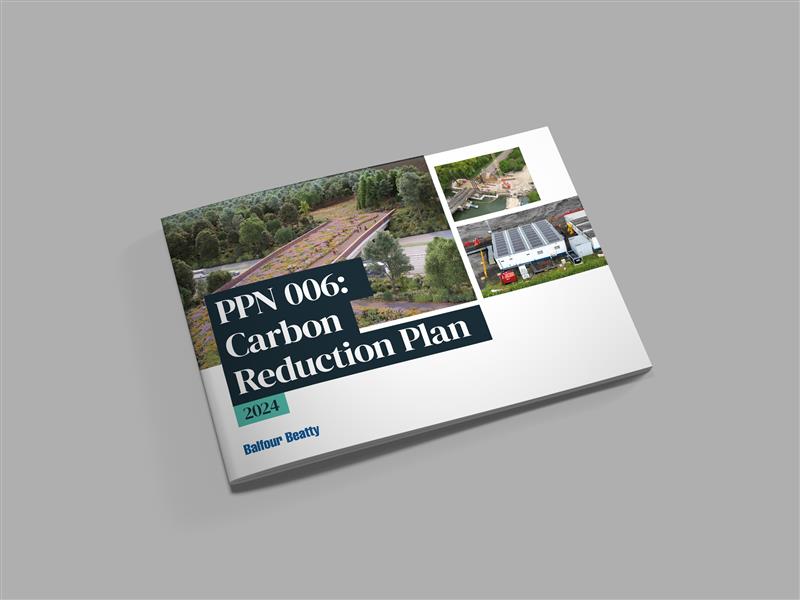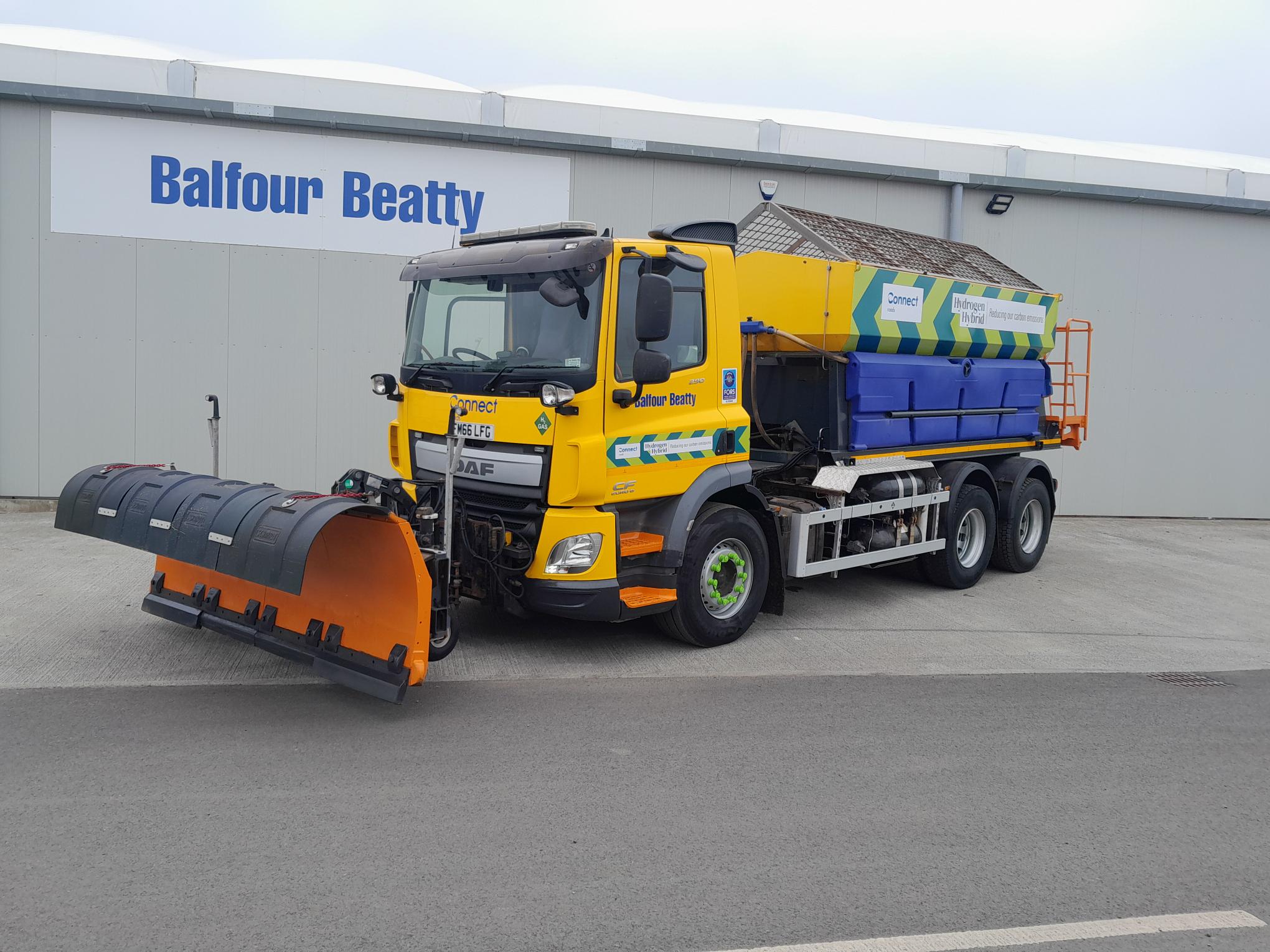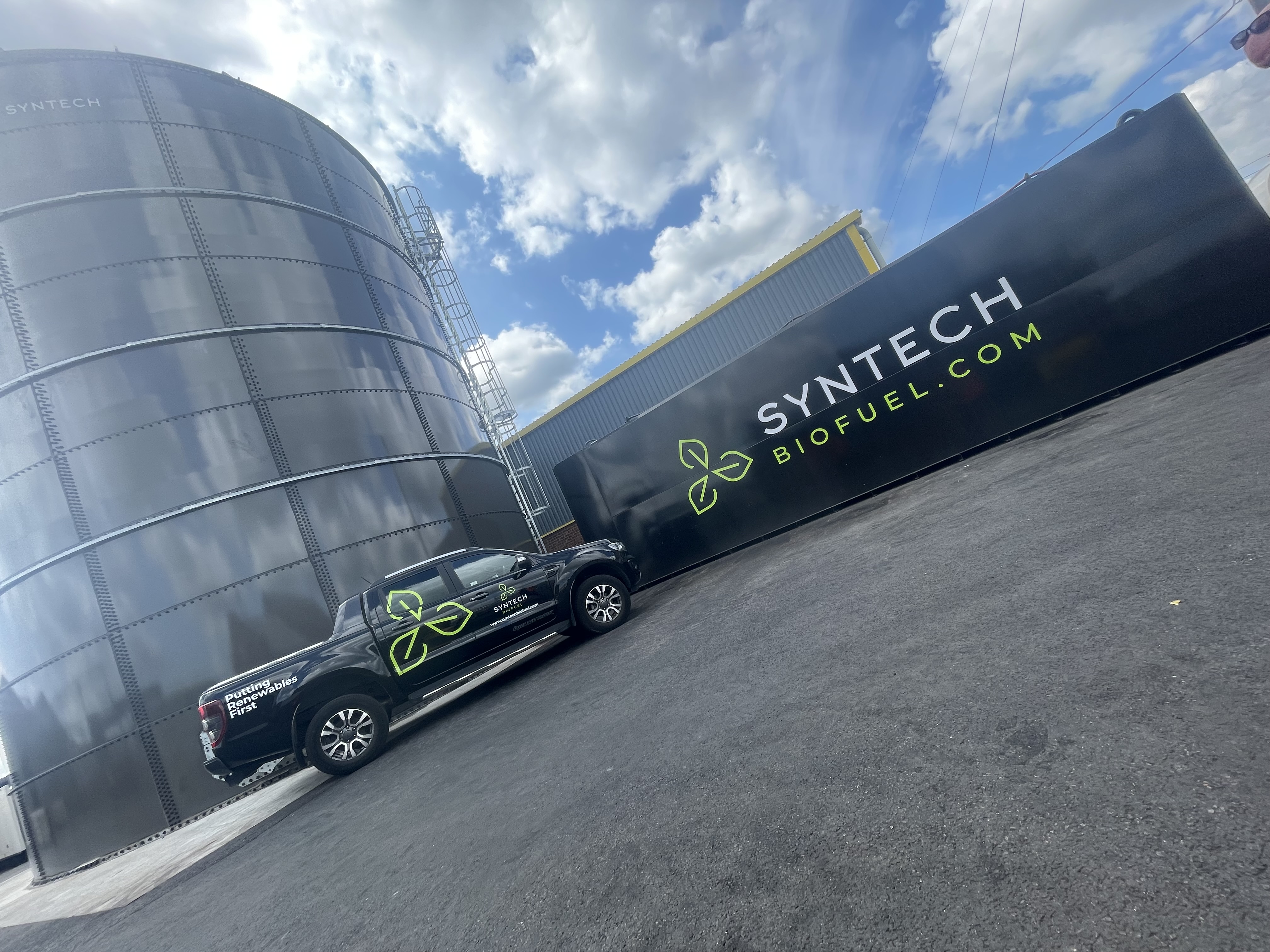In the UK, around 70% of our Scope 1 carbon emissions come from the fuel we directly purchase for our plant, fleet and generators. To reduce emissions from these sources, we have developed a three pronged approach of efficiency, electrification and alternative fuels. Supporting this work, we have also implemented the following minimum standards across our UK operations:
- On all new projects, the deployment of EcoSense cabins that produce up to 30% less carbon emissions.
- Using our Econet energy management solution on projects and contracts with four or more cabins. EcoNet reduces energy use by automatically turning off equipment when it is not in use and selecting the lowest carbon energy sources from those available.
- Using our Power Profiler tool to develop the most carbon and cost-efficient site compound set-ups.
- Implementing our fuel hierarchy, shown below, to ensure we select the right energy sources for our plant, fleet and generators.
- Reducing vehicle idling and improving plant and equipment utilisation through expert management of works, telematics and local management controls.
Complementing the introduction of these minimum standards, in 2024 our Highways business in the UK has achieved PAS2080:2023 certification, the gold standard for buildings and infrastructure carbon management. Following this certification we are embedding elements of PAS2080:2023 into our UK-wide Business Management System, which is already certified to the ISO14001:2015 environmental management systems standard, to help other business areas progress towards a PAS2080:2023 verified carbon management approach.
In the US, we have begun work to further analyse and understand the sources of our carbon emissions and will develop detailed carbon reduction plans for each of our US businesses in 2024.
Choosing the right fuel
Developed by our in-house energy management experts, our fuel hierarchy helps our projects and supply chain partners to select the right energy sources for our plant, equipment, generators, vehicles and buildings, which account for the majority of our Scope 1 and 2 carbon emissions. You can find out more about our fuel hierarchy at balfourbeatty.com/fuelhierarchy
In 2023, the implementation of our minimum standards in the UK and increased focus on carbon emissions in the US has reduced our absolute carbon emissions by 2% and our carbon intensity by 7% against our 2022 performance.




